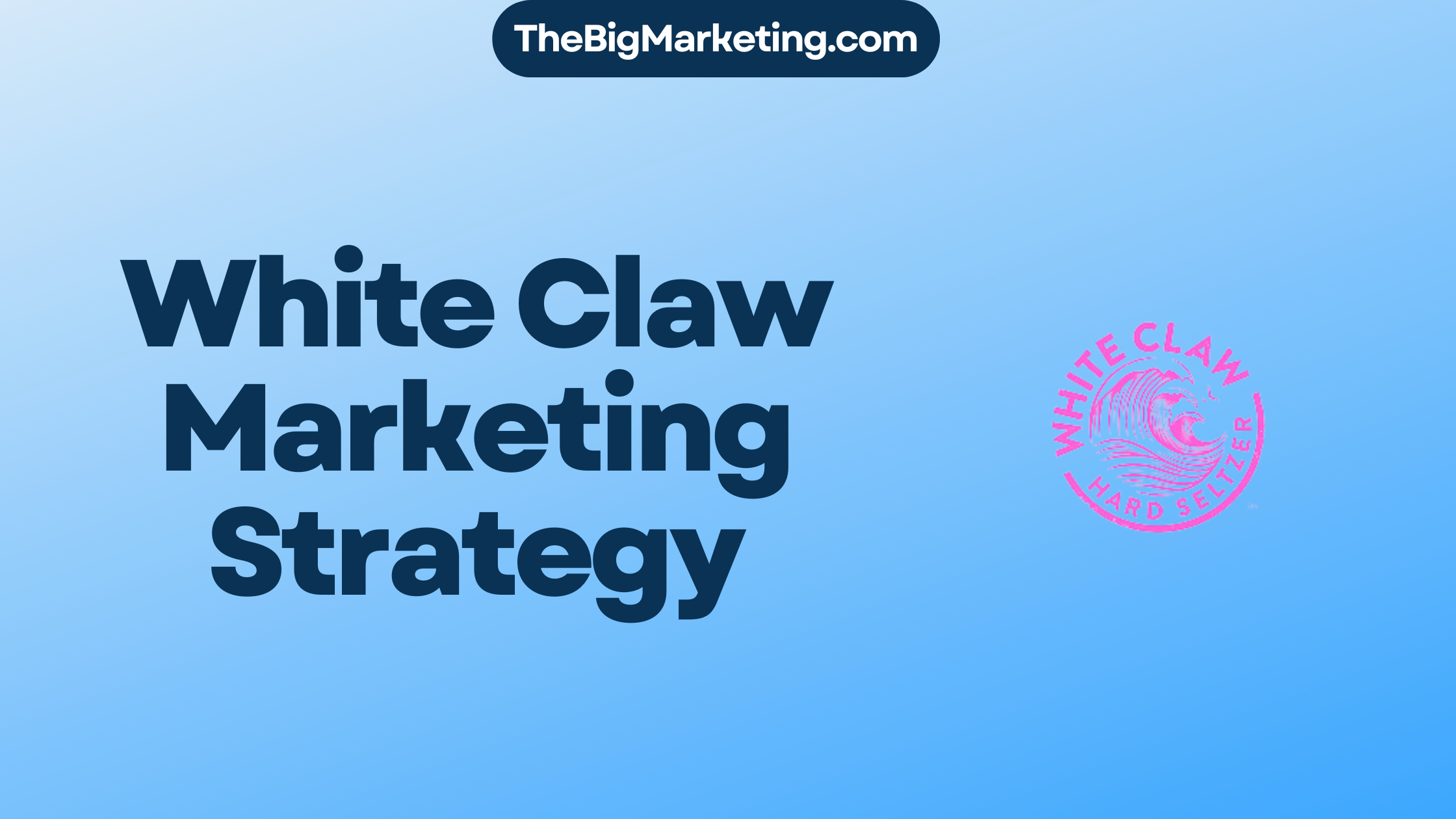Patagonia, a renowned outdoor clothing company, has emerged as a leading example of sustainable marketing in recent years. With a strong focus on environmental advocacy, social responsibility, and conscious consumerism, Patagonia has successfully positioned itself as a brand that goes beyond profit to make a positive impact on the world.
At the heart of Patagonia’s marketing strategy is a commitment to authenticity and storytelling. By weaving narratives that resonate with their audience, the brand effectively communicates its values and mission. This authentic branding approach has helped Patagonia connect with consumers who prioritize ethical and sustainable practices.
Furthermore, Patagonia’s brand activism sets them apart in the industry. With campaigns that tackle pressing environmental issues, the company galvanizes individuals to take action and join the cause. The brand effectively leverages its platform and influence to drive change and raise awareness about the importance of sustainable practices.
In this case study, we will delve into the various elements of Patagonia’s marketing strategy, exploring how they incorporate storytelling, authenticity, and brand activism to engage their audience and drive their mission-driven approach. We will also analyze their digital marketing strategies, advertising campaigns, and assess their impact on the industry.
Key Takeaways:
- Patagonia’s marketing strategy revolves around sustainability, environmental advocacy, and conscious consumerism.
- Authentic storytelling and brand activism are integral to Patagonia’s approach.
- Patagonia effectively utilizes digital channels and social media to engage its audience.
- The brand’s advertising campaigns challenge traditional consumption patterns, promoting sustainable practices.
- Patagonia’s success showcases the potential for profitability and positive impact in ethical and mission-driven marketing.
About Patagonia
Patagonia is an American clothing company that specializes in outdoor clothing and equipment. Founded in 1973, Patagonia initially focused on producing mountain climbing gear before expanding its product line to include apparel for various outdoor sports. The brand has since grown to offer a wide range of sustainable products, maintaining a strong commitment to environmental conservation.
Patagonia is a leading name in the outdoor clothing industry, known for its quality and commitment to sustainability. The brand’s products are designed to withstand rugged outdoor activities while minimizing their impact on the environment. With a focus on durability and performance, Patagonia offers a range of outdoor apparel and equipment that caters to different activities and weather conditions.
Patagonia’s Outdoor Clothing
Patagonia’s outdoor clothing is crafted with precision and innovation, ensuring comfort, protection, and functionality in outdoor environments. Whether it’s hiking, climbing, camping, or any other outdoor activity, Patagonia’s clothing is designed to meet the demands of the adventure while prioritizing sustainable materials and ethical production.
Commitment to Sustainability
Environmental conservation is at the core of everything Patagonia does. The brand focuses on reducing its carbon footprint, using recycled and organic materials, and implementing fair trade practices in its supply chain. Patagonia also supports environmental organizations and initiatives, advocating for the protection of natural resources and promoting responsible consumption.
Image of Patagonia in Action
| Key Features of Patagonia | Why Choose Patagonia |
|---|---|
| Sustainable materials | Patagonia’s commitment to using recycled and organic materials ensures a reduced impact on the environment. |
| Durability | Patagonia’s outdoor clothing and equipment are built to last, with high-quality craftsmanship and materials. |
| Environmental advocacy | By supporting environmental organizations and initiatives, Patagonia contributes to the conservation of natural resources. |
| Community engagement | Patagonia fosters a sense of community among outdoor enthusiasts, inspiring a shared commitment to environmental stewardship. |
Patagonia’s Core Values and Mission
At the heart of Patagonia’s success lies its unwavering commitment to core values that prioritize environmental activism, transparency, and sustainable practices. The brand recognizes the urgent need to protect the planet and actively supports conservation efforts in innovative ways.
Patagonia firmly believes that it has a responsibility to use its business as a powerful tool for positive change, inspiring individuals and other organizations to take action towards a more sustainable future. By championing sustainable practices, Patagonia sets an example that demonstrates the possibilities and benefits of a purpose-driven approach.
The Brand’s Commitment to Environmental Activism
Environmental activism is deeply ingrained in Patagonia’s DNA, informing every aspect of its operations. The company actively engages in initiatives focused on preserving delicate ecosystems and combating climate change, partnering with organizations such as 1% for the Planet to support environmental nonprofit organizations.
Through its environmental activism, Patagonia seeks to raise awareness about pressing environmental issues and be a catalyst for change. The brand recognizes that protecting the natural world goes hand-in-hand with preserving the outdoor environments that its customers hold dear.
Transparency as a Guiding Principle
Patagonia places a strong emphasis on transparency, believing that honesty and openness are essential to building trust with its customers. The brand is committed to sharing information about its supply chain, manufacturing processes, and the impacts of its operations on the environment.
By being transparent about its practices, Patagonia aims to empower consumers with the knowledge to make informed decisions and hold companies accountable. Transparency is not just a buzzword for Patagonia—it is a fundamental principle that drives its commitment to sustainable and responsible business practices.
Driving Sustainable Practices for a Better Future
Sustainability is deeply embedded in Patagonia’s approach to business. The brand is dedicated to minimizing its environmental footprint by prioritizing eco-friendly materials, reducing waste, and embracing circular economy principles.
Patagonia’s commitment to sustainable practices extends to its customers as well. The brand encourages them to repair rather than replace products through its Worn Wear program, further reducing the overall environmental impact of its products.
Patagonia’s Unique Approach to Marketing
Patagonia sets itself apart from its competitors through a distinctive and impactful marketing strategy. The brand’s success lies in its ability to effectively connect with its audience through authentic storytelling, brand activism, and cause marketing.
Authentic Storytelling:
Patagonia understands the power of a compelling story. By sharing stories of individuals who embody the Patagonia lifestyle and values, the brand creates a sense of authenticity and community. These stories not only resonate with the audience but also inspire others to join the movement towards a sustainable and conscious way of living.
Brand Activism:
Patagonia goes beyond traditional marketing tactics by actively championing environmental causes and social activism. The brand uses its platform and resources to drive meaningful change, standing up for what it believes in. By aligning its values with those of its target audience, Patagonia shows that it is more than just a clothing company—it is a catalyst for positive impact.
Cause Marketing:
Patagonia’s commitment to environmental sustainability is evident in its cause marketing initiatives. The brand partners with various organizations and campaigns to raise awareness about pressing environmental issues and support conservation efforts. Through cause marketing, Patagonia engages its audience on a deeper level, promoting a shared sense of purpose and responsibility.
Patagonia’s unique approach to marketing has not only helped position the brand as a leader in the industry but also inspired others to follow suit. By prioritizing authentic storytelling, brand activism, and cause marketing, Patagonia has cultivated a loyal community of conscious consumers who believe in the brand’s mission and actively participate in driving social and environmental change.
Digital Marketing Strategy
Patagonia recognizes the immense power of digital marketing channels in effectively communicating its message and engaging with its audience. The brand leverages social media platforms to share compelling stories, promote its sustainable products, and raise awareness about pressing environmental issues.
Patagonia’s digital presence extends across popular social media platforms such as Facebook, Instagram, Twitter, and YouTube. Through these channels, the brand connects with its audience on a personal level, fostering a sense of community and inspiring individuals to join the movement towards conscious consumerism and environmental stewardship.
Engaging Social Media Campaigns
One of Patagonia’s notable social media campaigns, “The Footprint Chronicles,” provides transparency and authenticity by documenting the environmental impact of its products. The brand shares behind-the-scenes stories, highlighting the sustainable practices and initiatives undertaken to reduce its footprint. This campaign encourages consumers to make informed choices and demonstrates Patagonia’s commitment to authentic communication.
A key aspect of Patagonia’s digital marketing strategy is its emphasis on user-generated content. The brand actively encourages its followers to share their outdoor adventures and experiences with Patagonia products using branded hashtags. By amplifying user-generated content, Patagonia cultivates a sense of community and empowers its audience to become brand advocates.
Social Media Metrics
The success of Patagonia’s digital marketing strategy can be measured through various social media engagement metrics, including:
| Metric | Description |
|---|---|
| Followers | The number of individuals who follow Patagonia’s social media accounts, providing a measure of the brand’s reach and influence. |
| Likes/Shares/Comments | The number of likes, shares, and comments on Patagonia’s social media posts, indicating the level of engagement and interest among its audience. |
| Reach | The estimated number of unique users who see Patagonia’s social media content, reflecting the brand’s visibility and exposure. |
| Impressions | The total number of times Patagonia’s social media content is displayed, providing insights into the frequency and impact of its messaging. |
By analyzing these metrics, Patagonia can gauge the effectiveness of its digital marketing efforts and refine its strategies to further enhance engagement and promote its mission-driven approach.
The image above exemplifies Patagonia’s digital presence, showcasing its strong social media engagement and authentic communication style that resonates with its audience.
Advertising Campaigns
One of the key aspects that sets Patagonia apart is its impactful advertising campaigns that challenge traditional consumption patterns. Notably, the brand’s campaign titled “Don’t buy this jacket” has garnered significant attention and sparked conversations about sustainable consumption.
The campaign’s central message encourages consumers to think critically about their purchasing decisions and prioritize sustainability over mindless consumption. By urging individuals to resist the temptation of buying unnecessary items, Patagonia promotes conscious consumerism, where quality and longevity are valued over impulse buying.
The “Don’t buy this jacket” campaign highlights the environmental impact of the apparel industry and aims to raise awareness about the importance of sustainable practices. Through thought-provoking imagery and persuasive storytelling, Patagonia emphasizes the need for responsible consumption and highlights the brand’s commitment to environmental conservation.
This image reflects the essence of Patagonia’s advertising campaigns, showcasing the brand’s commitment to sustainable consumption and responsible decision-making. It serves as a powerful reminder that every purchasing choice carries an environmental consequence.
Patagonia’s advertising campaigns not only raise awareness about sustainability but also inspire individuals to take action and become conscious consumers. By challenging social norms and advocating for sustainable practices, Patagonia continues to lead the way in promoting a more environmentally friendly and responsible approach to consumerism.
Key Themes of Patagonia’s Advertising Campaigns
| Theme | Description |
|---|---|
| Conscious Consumerism | Encouraging consumers to think critically about their purchasing decisions and prioritize sustainability. |
| Sustainable Consumption | Raising awareness about the environmental impact of the apparel industry and promoting responsible consumption. |
| Resisting Mindless Consumption | Urging individuals to resist the temptation of impulse buying and focus on long-lasting, quality products. |
| Environmental Advocacy | Highlighting the brand’s commitment to environmental conservation and inspiring others to take action. |
Competitors Analysis
When it comes to outdoor apparel brands, Patagonia faces stiff competition from industry leaders such as The North Face, Columbia Sportswear, REI Co-Op, Arc’teryx, and Marmot. These companies offer a range of outdoor clothing and gear, making the market highly competitive.
However, Patagonia stands out from its competitors through its unwavering commitment to sustainability, environmental advocacy, and brand activism. While other brands may also prioritize some aspects of sustainability, Patagonia goes above and beyond to integrate these values into every aspect of its business.
The North Face
The North Face is a well-established brand known for its durable and performance-driven outdoor clothing and gear. While The North Face also emphasizes environmental responsibility, Patagonia’s dedication to sustainability and brand activism sets it apart.
Columbia Sportswear
Columbia Sportswear, with its extensive product range, competes directly with Patagonia. However, Patagonia’s strong emphasis on sustainability and environmental conservation gives it a unique advantage over Columbia Sportswear.
REI Co-Op
REI Co-Op, a member-owned cooperative, shares some similarities with Patagonia in terms of a commitment to ethical practices. However, Patagonia’s brand activism and storytelling approach give it a distinct edge in connecting with consumers on a deeper level.
Arc’teryx
Arc’teryx is renowned for its technically advanced and high-performance outdoor apparel. While Patagonia also focuses on innovation and functionality, its emphasis on sustainability and environmental advocacy gives it a competitive edge over Arc’teryx.
Marmot
Marmot is another brand offering outdoor clothing and equipment, but Patagonia’s strong track record as a leader in sustainability and ethical practices makes it the brand of choice for conscious consumers.
By focusing on its commitment to sustainability, environmental advocacy, and brand activism, Patagonia sets itself apart from its competitors. The brand’s authentic values and dedication to making a positive impact resonates with consumers who prioritize both quality and conscious consumerism.
Impact and Recognition
Patagonia’s unique marketing strategy has made a remarkable impact, resulting in widespread brand recognition and financial success. Through its unwavering commitment to sustainability and environmental responsibility, Patagonia has garnered the loyalty and admiration of a dedicated customer base.
Despite its ethical focus, Patagonia has not compromised on its financial performance. The brand’s ability to align purpose and profitability serves as a testament to the power of conscious consumerism and sustainable practices.
Patagonia’s impact extends beyond its own achievements. The brand has inspired other businesses in the industry to adopt more sustainable practices and prioritize social and environmental responsibility.
| Brand Recognition | Financial Performance | |
|---|---|---|
| Patagonia | High | Consistently strong |
| Competitor 1 | Moderate | Variable |
| Competitor 2 | Moderate | Stable |
| Competitor 3 | Low | Declining |
The table above illustrates the brand recognition and financial performance of Patagonia compared to its competitors. Patagonia prevails with high brand recognition and consistently strong financial performance, outshining competitors in the industry.
Key Takeaways:
- Patagonia’s marketing strategy has had a significant impact, resulting in high brand recognition.
- The brand’s financial performance has remained consistently strong, showcasing the compatibility of sustainability and profitability.
- Patagonia’s influence extends beyond its own success, inspiring other businesses to embrace sustainable practices.
Patagonia’s Future Outlook
Looking ahead, Patagonia remains committed to its mission and values. The brand will continue to prioritize sustainability and environmental conservation in its operations. Patagonia aims to expand its reach and inspire even more individuals and businesses to join the movement towards a more sustainable future.
- Continued Sustainability Efforts: Patagonia will further strengthen its sustainability initiatives, implementing innovative practices across its supply chain and product development processes.
- Environmental Advocacy: Patagonia will continue to champion causes related to environmental conservation and protection, using its platform to raise awareness and drive positive change.
- Expansion and Influence: The brand plans to expand its reach, reaching new markets and engaging with a wider audience. Patagonia’s goal is to inspire individuals and businesses globally to adopt sustainable practices.
As Patagonia looks to the future, its unwavering commitment to sustainability and environmental responsibility sets the stage for a continued positive impact on both the industry and the planet.
Conclusion
Patagonia’s marketing strategy stands as a testament to the power of integrating sustainability, environmental advocacy, and social responsibility into a brand’s core values. Through its unwavering commitment to authenticity, storytelling, and brand activism, Patagonia has not only built a dedicated customer base but also achieved remarkable success in the market. By focusing on its purpose and mission, Patagonia has become an exemplar for businesses aiming to drive their marketing strategies while making a positive impact.
Throughout its journey, Patagonia has embraced a sustainable approach and has established itself as an industry leader in promoting conscious consumerism. The brand’s advertising campaigns, such as the influential “Don’t buy this jacket” campaign, have challenged traditional consumption patterns, encouraging individuals to prioritize sustainability and make informed purchasing decisions. Patagonia’s marketing efforts are not just about selling products but about inspiring change and creating a community of likeminded individuals who share the brand’s values.
Looking forward, Patagonia remains committed to its purpose and mission. The brand will continue to prioritize sustainability and environmental conservation, driving its operations and inspiring others to adopt more sustainable practices. With its marketing strategy at the forefront, Patagonia serves as a shining example of how a brand can achieve sustainable success by aligning with its purpose and championing environmental advocacy.
FAQ
What is Patagonia?
Patagonia is an American clothing company that specializes in outdoor clothing and equipment.
What are Patagonia’s core values?
Patagonia’s core values center around environmental activism, transparency, and sustainable practices.
How does Patagonia approach marketing?
Patagonia uses authentic storytelling, brand activism, and cause marketing to engage its audience.
How does Patagonia leverage digital marketing?
Patagonia leverages social media platforms to share stories, promote its products, and raise awareness about environmental issues.
What is Patagonia’s notable advertising campaign?
Patagonia’s notable campaign is “Don’t buy this jacket,” which promotes conscious consumerism and sustainability.
Who are Patagonia’s competitors?
Patagonia’s competitors include The North Face, Columbia Sportswear, REI Co-Op, Arc’teryx, and Marmot.
What impact has Patagonia made?
Patagonia has built a loyal customer base, achieved financial growth, and inspired other businesses to become more sustainable.
What are Patagonia’s goals for the future?
Patagonia aims to continue prioritizing sustainability and environmental conservation in its operations.
What sets Patagonia apart from other brands?
Patagonia differentiates itself through its commitment to sustainability, environmental advocacy, and brand activism.
Why is Patagonia’s marketing strategy successful?
Patagonia’s marketing strategy is successful because it aligns with its purpose, engages its audience, and drives social change.







